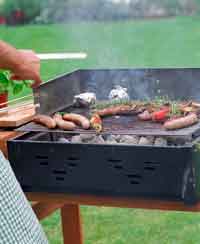EU marketing rules blamed for potential poultry job losses

More details have emerged on how new EU marketing rules coming into force next year are putting jobs at risk at a Northern Ireland poultry processing plant.
O’Kane Poultry, based in Northern Ireland, has been forced by new EU marketing rules to review its company operations leading to the possible loss of about 140 jobs. The company currently employs around 1500 people at its Ballymena processing plant.
The new rules which come into force in May 2010, prohibit the sale of poultry preparations made from previously frozen poultry meat in the chilled state (unfrozen). All preparations using previously frozen meat must, from next May, be sold as frozen.
This will particularly affect peak demand products such as turkey portions and BBQ. Current UK practice is to build stocks of these products throughout the year, utilising super-chill freezing technology and releasing them for sale under the Previously Frozen label as seasonal demand grows.
This spreads production over the year, enabling efficient utilisation of farms and processing facilities. It also ensures a level workload and a predictable workforce, and ensures that sufficient supplies are available when consumers require them.
The spokesperson said: “Products sold under the Previously Frozen label were used to ensure adequate supplies at peak demand periods. While this new legislation will be operationally disruptive for the reasons outlined, it will affect only 10% of the total O’Kane Poultry output.
“We want to stress to consumers that any products labelled Fresh are fresh and have not been previously frozen. This has always been the case and will continue to be the case. Products sold under the Previously Frozen label were used to ensure adequate supplies at peak demand periods.”
She added: “For example, we would normally be starting to produce BBQ products by January or February to meet summer demand. But the May 2010 implementation means it will no longer be possible.
“This means that rather than being able to spread production and processing capacity over the year, these processes must now be concentrated for peak periods, leading to under-utilisation of capacity at other times of the year. We are exploring options to utilise our farms throughout the course of the year.”
